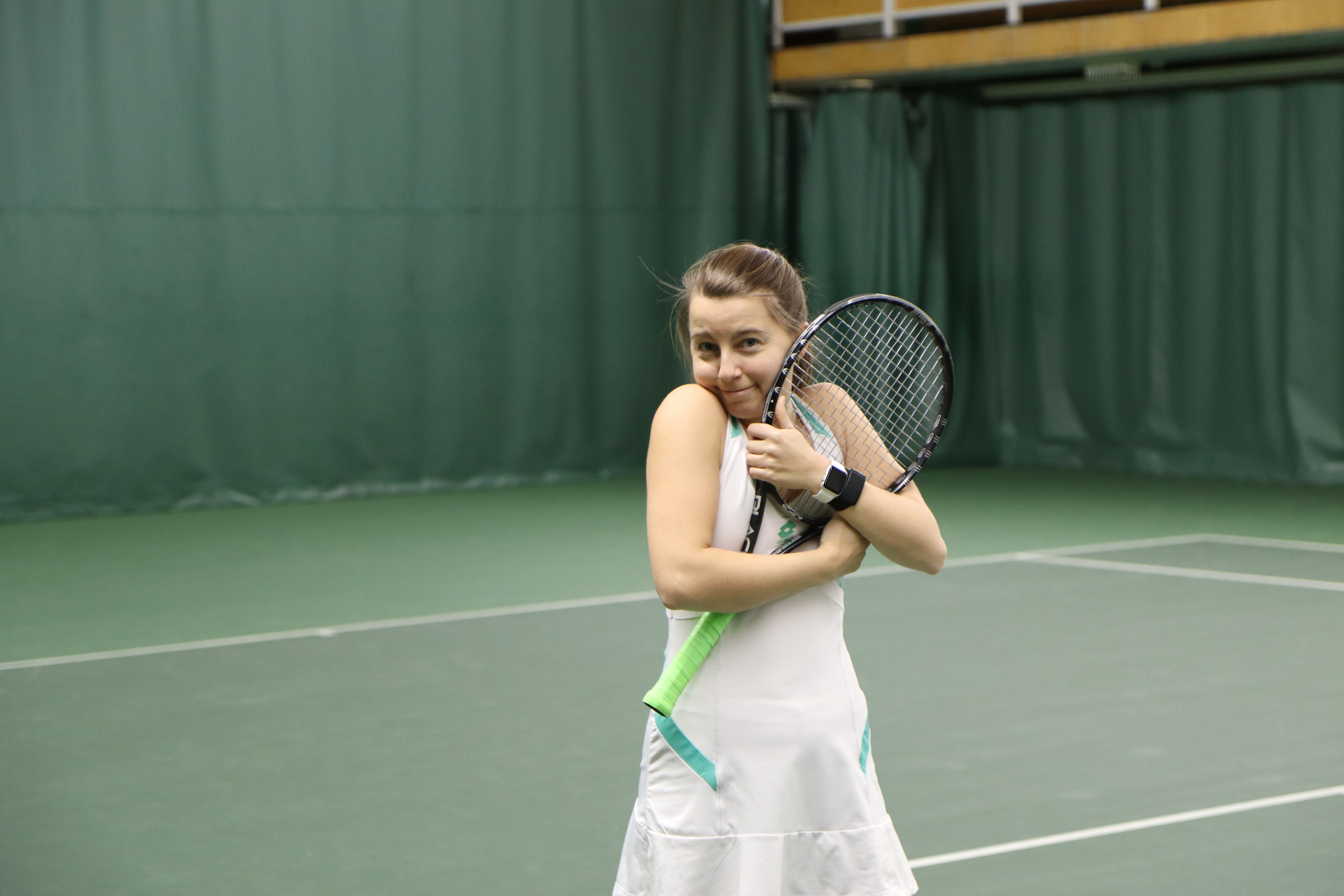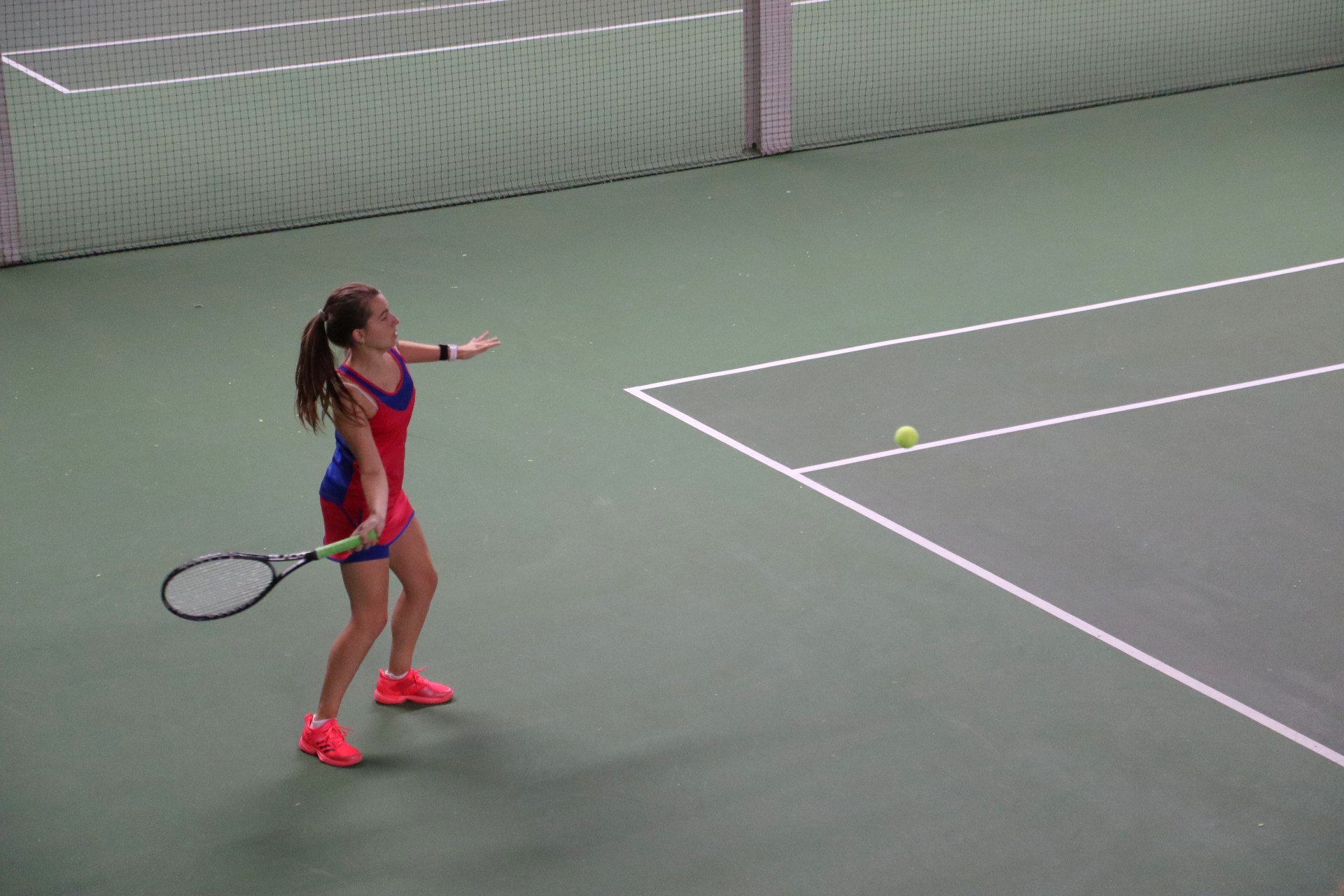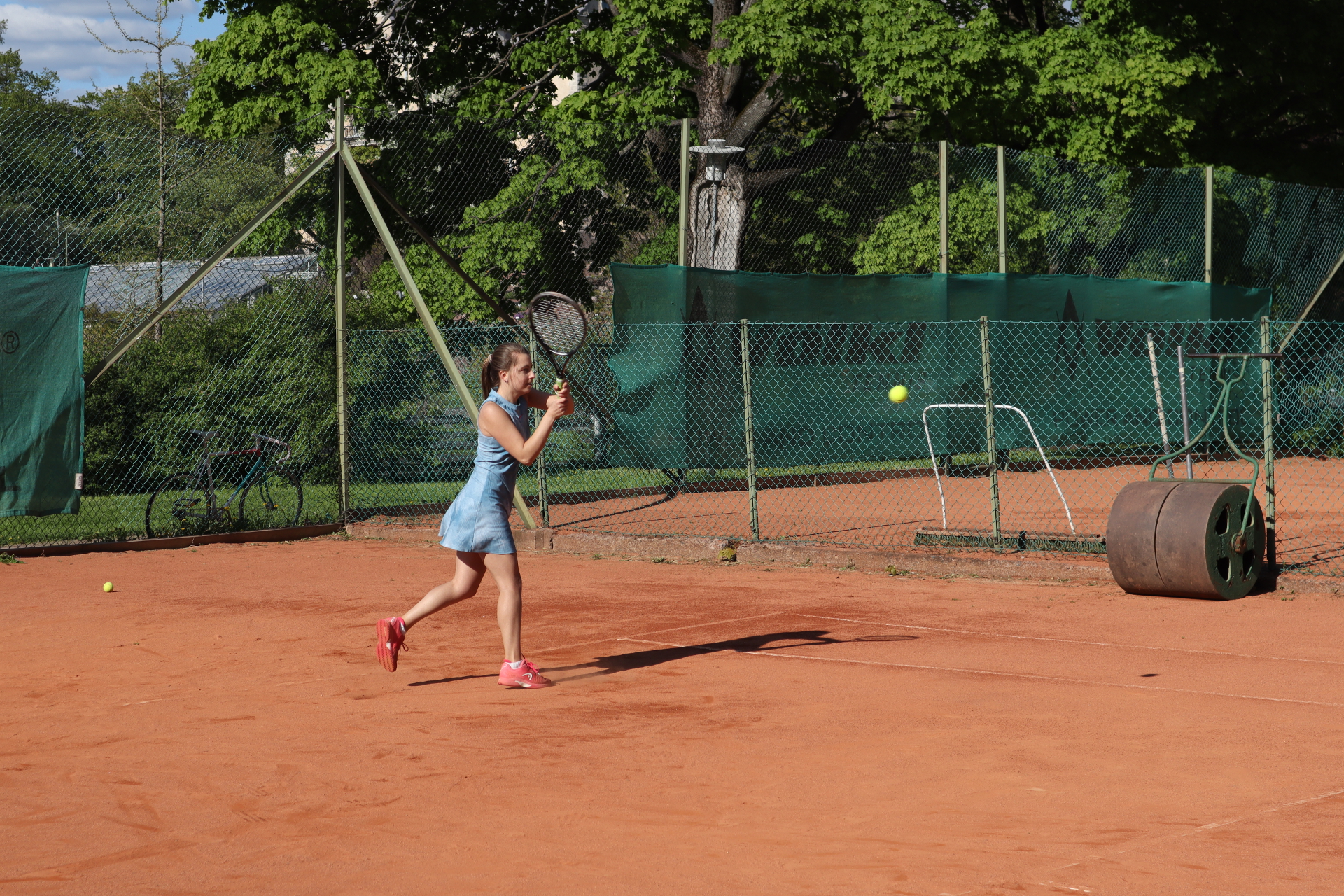My 3 rules for keeping frustration off the court

Ever feel like you'd want to punch somebody 👊, shout as loud as you can 📣 or just smash your racket 💥?
I know I know... sometimes it's hard to resist! (Take it from someone who used to miss an easy ball and go nuts 🥜.)
But keeping your cool when things don't go as smooth as you'd like is not that hard after all. Not if you have the right mindset and set of rules in place!
Hi, I'm Elena Margaria 👋🏻 and just like you, I'm on a mission to become the best tennis player I can 🥇. Even without a fancy team, or too much talent. Just with a huge desire to make it.
That's why Tennis Rematch exists: to share everything I learn along the way 🤓, so you can get better faster, and together we can prove that we can achieve anything we set our mind to 🔥.
But back to business!
If you saw me play these days, you'd think I'm the calmest tennis player on the planet: indeed, I practically never lose my cool (and I'm very proud of that 😇).
But no, it's not always been the case.
Even though I never was one who threw rackets or shouted at the people on the stands, you should have heard how I used to lecture myself: like I knew nothing, less than zero.
But then one day, out of nowhere, I broke my racket 😳. What a shock that was! And then I learnt. A bit at a time, but I learnt.
And now here I am, sharing with you the tiny little mind tricks I use these days to hold off my frustration and keep cool when on court. Hopefully they'll work well for you too 🤞!
But before we get there, let me tell you the whole story of how I broke my first (and only) racket, because it's quite ridiculous. (I still cannot believe it actually cracked like that 🙊!)
That time when I broke my racket
Yes. It happened to me as well 😳: I have broken a racket. Guilty 🖐️.
I have to say I was very unlucky (in addition to young and wild 🐒), but still... if it wasn't for my frustration, I would still have a clean record of zero broken rackets (and an extra spare racket in my bag).
I was 16 years old 👧 and having a fantastic tennis year: I was winning a lot and everything seemed to be going according to plans. My time had finally come!
I had been chasing the girls of my age since I'd grabbed my first racket at the age of 11 (you've read my tennis story, haven't you?), and finally I had caught up. In the bottom of my heart I knew it: that year I had my first real chance to qualify for the nationals and do well.
But then, something went terribly wrong: 3 weeks before the last tournament of the qualifying series, I broke my left arm during a sailing course ⛵ organized by my school.
You have no idea how much I cried when it happened: breaking my arm had broken my heart 💔 .
I still remember calling my mum from the boat to let her know what had happened, and telling her not to worry about the arm, that it would be fine, and imploring her to let me play the coming tournament with the cast 🙏. (After all, I only had to get to the semis to qualify.)
I don't know how I convinced her, but in the end she agreed to let me play. I guess she knew that nationals meant the world to me.
The girl I had to play in the quarterfinals was a girl I had never lost to before, so yes, to my eyes it was doable: not easy, but doable. Even without an arm.
👉 Yes, my beloved two-handed backhand was out of use because of the cast. But I had been practicing my slice backhand 🔪 for the past three weeks and wasn't that bad.
👉 Yes, tossing with the cast wasn't exactly a piece of cake, but hey, an imprecise toss 🎯 was still better than no toss at all.
👉 And yes, running with the cast wasn't helping either, but my big heart could make up for it. I was 💯% sure.
Can you imagine the pressure I had put on myself?! Let's be honest: no sane person would ever think of playing a tennis tournament with a cast, let alone winning it 🙉! But I did think it was possible, if only everything would go to perfection.
And guess what? It didn't. (When does it ever go to perfection?! 😏) And I lost the match.
Not by much though: 7-6 6-1 or something like that, if I remember correctly. And the fact it was so tight was what made my frustration grow out of proportion 😭.
If I could battle like that without an arm, how easy would have it been to win in normal conditions?! Life was so unfair 🥺.
That was all I could think during the tiebreak of the first set.
And that was exactly why I (slightly) hit the back wall of the tennis bubble after I missed a point in the tiebreak.
For once I wasn't even angry or pissed. I was just... feeling mistreated by life. Like if all the effort I had put in was for nothing and going completely unnoticed by whoever decided to put a spoke in my wheel 😤.
I thought I deserved a reward for my titanic effort and my big boldness to go out there and play without an arm. Where was that reward?!
Really, the last thing I wanted was to break my racket. All I wanted was to wake up the tennis gods up there and remind them that hey, I deserved my reward 🙋♀️!
Never would I have imagined that right behind where I hit the wall there was a big, hard pole supporting the whole structure, that would CRACK my racket. Just like that 🤯.
I mean... how unlucky was that?! I couldn't believe it 😓.
And now, who would tell my mum what had just happened?! I was terrorized 😱. Literally! (My mum has always rightly been super, mega strict about this, and back then I genuinely thought that would be my last match ever. It wasn't, luckily 🍀)
Cracking my racket, although not intentionally, tore apart every chance of victory I still had. It made me feel so bad and guilty that from there on my brain was all over the place!
That day I learnt an important lesson: frustration can screw it all up.
It doesn't really matter where it comes from. Or if there's a good reason for it. You have to stay away from frustration. At all costs.
I know it's easier said than done, but you have to avoid giving in in the first place. Because once you do, then it gets tougher and tougher to calm yourself down. Even impossible at times.
Honestly, I don't exactly know how you should keep your frustration away, but I can tell you what works for me nowadays.
Every time I catch myself acting negative on the court, I remind myself of that day and how things could have turned differently if only I hadn't felt so frustrated. And pouf 💥, the painful thought of losing that match after all the heart I had put in makes all the ready-to-kick-in frustration vanish in no time.
In addition to this, which is actually my last resort in case things start going out of hand, I also have a set of rules or habits I try to stick to that are meant to keep me with a positive mindset 👇🏻:
🔺 Whenever a point ends with a mistake by me, I try to look at it as objectively as I can: was it really a gift or I missed because my opponent did a great job and forced me into an error?
If the latter is true (which is the case most of the time), then I simply acknowledge it and move on. After all, I'm not the only one wanting to win!
So "good job" to my opponent 👏, and I get ready to do even better in the next point. It looks like she's challenging me, let's challenge her more!
If it was really a gift instead, I just accept it: it's not the first and surely won't be the last unforced error of the match.
Maybe it's a sign I'm getting tired, or a little unfocused. Whichever, the dumbest thing I can do is to spend extra energy (physical and mental) getting frustrated! #thanksButNoThanks
🔺 I don't let myself think of technique at all while playing a match.
For real: technique thoughts are banned.
Otherwise I know for a fact that at my first two mistakes in a row I'd start giving myself orders and instructions on how to perform the shot better, and wonder how is it possible I've done it correctly 1 million times and now it just doesn't come. I can already hear myself 🙄.
Instead no, I keep the technique stuff off the court so I'm sure I don't run the risk of falling into my (once usual) negative self talk and poor body language that do nothing good but boost the confidence of my opponent!
🔺 I think of bad days as a blessing, not as a curse.
Everybody has bad days, and on the tennis court that's even more true: they happen alllll the time. Which means, the sooner you make it your goal to make the most of what you have on every single day, the better!
That's indeed how I step on the court these days, be it for practice or for a match.
I don't expect things to go to perfection anymore (I think it's better to leave these insanely high expectations to someone else 😈). Instead, I expect things to be challenging and tough: after all, I'm on the court to improve, no?!
In this way, if things turn to be as I thought then I'm mentally prepared and ready to solve the puzzle of that day (and give myself a pat on the back), otherwise yuhuuu... I got a free bonus!
And voilà, there you have it: my little set of rules to keep cool on the court and not let frustration kick in!
Just give them a try and see if they work for you too. For me they did wonders!
I really hope you enjoyed this blog: it was fun to remember those good old days when I believed I could qualify for the nationals with a cast! (My determination has always been there, that's for sure!) If you did enjoy it, click on the clap button so I know you did 💕!
💬 And before you go... tell me in the comments below (because I'm dying to know 😇): how do you show your frustration (if you do) on the court? Are you quiet like I was and lecture yourself, or do you shout and smash rackets?! Let's see how similar or different we all are!
I'll see you in the next blog, ciaooo!!
Then you're one of us! We're a community of passionate and motivated tennis players who work hard every day 💦 to reach their goals, motivate each other 🔥 to keep going when things get tough and share their own experiences 💬 so everybody can get better faster.

Hungry for more?
Enjoy these tennis bites, they’re just as good! 🤗👇


